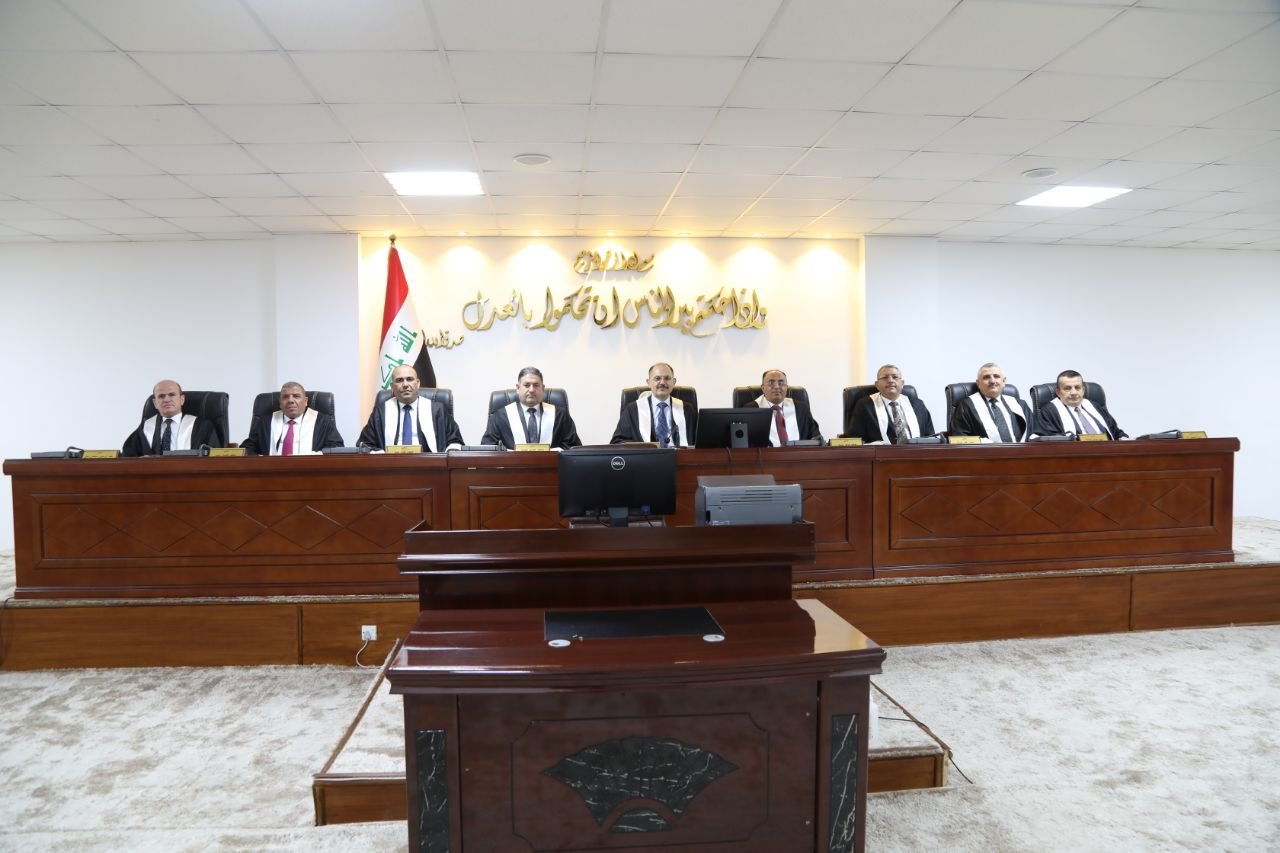Mass Resignations Shake Iraq’s Federal Court Amid Iran–Israel War Fallout

Iraq’s Federal Supreme Court has been rocked by mass resignations at a time of escalating regional instability driven by the Iran–Israel war. Nine out of the court’s 14 members—six permanent and three reserve judges—have reportedly submitted their resignations, plunging the judiciary into uncertainty.
Context: The Federal Court consists of nine core judges and four alternates, meaning a majority have now stepped down. Among those resigning are both judges affiliated with the Patriotic Union of Kurdistan (PUK): permanent judge Hakim Diyar Mohammed and reserve judge Hakim Jasim Jaza. The court had been set to issue key rulings on two politically sensitive issues—disbursement of salaries to Kurdistan Regional Government (KRG) employees and the contentious land dispute over the Khor Abdullah waterway with Kuwait—but the resignations have derailed proceedings.
Analysis: The official reasons for the mass resignation remain opaque, but informed sources suggest the move was a coordinated protest against the court’s president, Judge Jasim Amiri. Tensions reportedly flared over his attempt to bundle the KRG salary ruling with a decision to reaffirm Iraq’s controversial agreement with Kuwait over Khor Abdullah—an approach that alienated several members.
Reportedly, the court had previously ruled—or was preparing to rule—against transferring the area to Kuwait. However, the judges who submitted their resignations claim the president is now attempting to unilaterally reverse that position and approve the transfer. The situation is further complicated by the fact that the original agreement to hand over Khor Abdullah was ratified by the Iraqi parliament in a highly contentious session. The issue has since become deeply politicized.
Before resigning, the judges had already submitted written legal opinions on the KRG salary case. These indicate a majority favored issuing a decree to authorize salary payments. Legally, a trial is not required to finalize this decree; the court president can proceed based on the majority’s opinions. Despite their resignations, the judges technically remain in office until the resignations are formally accepted.
Iraq’s Federal Court Composition
The crisis also underscores the political bind facing Prime Minister Mohammed Shia al-Sudani. With competitive elections approaching, he has sought to avoid direct responsibility for KRG salary payments—deferring the matter to the judiciary to shield himself from accusations of weakness by rival Shiite factions. The court’s collapse now leaves that strategy in limbo.
The timing is especially critical. The resignations come amid growing fears that the Iran–Israel conflict could expand, potentially drawing in Iraqi Shiite militias aligned with Tehran. Just today, Grand Ayatollah Ali al-Sistani issued a rare warning against any attempt to assassinate Iran’s Supreme Leader Ali Khamenei, suggesting that such an act could trigger a much wider war. Given the central role of the Marja’iya in Shia political theology, a fatwa from Sistani in response to such an event could mobilize millions of Shia across the region.
In this volatile environment, the collapse of the judiciary could have far-reaching consequences. According to sources in Baghdad, the resigning judges may have acted preemptively, anticipating the Federal Court’s dissolution as Iraq slides deeper into political and regional turmoil. With fears mounting over the spillover of the Iran–Israel war and potential militia mobilization, serious discussions are underway about postponing the November 2025 elections. In that scenario, the current government—will function in a caretaker capacity—would lack the political mandate to handle a national crisis of this scale. As a result, momentum is building around the idea of forming an emergency or national unity government with broader authority to navigate the uncertain period ahead.











